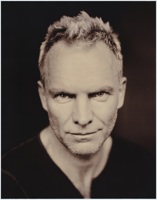Time to speak out on Iran (Source: Philadelphia Inquirer)
An article published in the Philadelphia Inquirer mentions Kian’s case:
“…Iran’s opposition “green” movement – which started as a protest against election fraud – has grown into a much broader civil rights movement. Monday’s demonstrations – documented on YouTube despite the regime’s media ban – showed that Iranians both young and old are increasingly inflamed by the government’s brutality toward its own people.
So why is President Obama so quiet about Iran’s human rights abuses?
Yes, U.S. officials have raised the case of three American hikers imprisoned after straying across the border in Iraqi Kurdistan. And they have protested the jailing of Iranian American scholar Kian Tajbakhsh. But the White House has been noticeably reluctant to raise wider human rights concerns with Tehran.
The administration seems to fear that criticism of Tehran’s human rights violations would impede talks on curbing Iran’s nuclear program. But those talks have stalled since Iran backed off a promising compromise proposal. The impasse is linked to Iran’s repression of human rights.
Iran is going through an internal power struggle that is far from over and has paralyzed its domestic politics. This will make it extremely difficult to do a deal with Tehran in the near term.
The heart of the problem: The hard-line core of Iran’s Revolutionary Guard military force wants to consolidate power and crush any political opposition. The Revolutionary Guards, who are directing the crackdown in the country, resisted a compromise on the Iranian nuclear program (even though their man, President Mahmoud Ahmadinejad, seemed to endorse it).
“They want to put the country on a war footing,” said Hadi Ghaemi, coordinator of the International Campaign for Human Rights in Iran, “because they see this as the easiest way for them to consolidate power inside Iran.” So, says Ghaemi, there is no point in our keeping mum on Iran’s crackdown on its growing civil rights movement: “The Obama administration has to recognize that the Iranian protest movement is an undeniable reality that is not going way.”
Ghaemi and other Iran experts stress that Obama should take an approach different from the Bush administration’s. The latter linked support for the Iranian opposition to calls for “regime change” and provided funds for regime opponents. This gave Tehran a handy excuse to brand all Iranian civil-society groups as spies.
Rather than offer material support, says Ghaemi, Obama should be a moral voice. He should hold Iran to account at the United Nations for international conventions it has signed calling for freedom of expression and assembly…”
 Sting makes appeal for Kian Tajbakhsh and Iranian detainees.
Sting makes appeal for Kian Tajbakhsh and Iranian detainees.